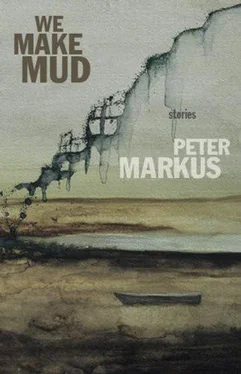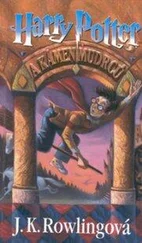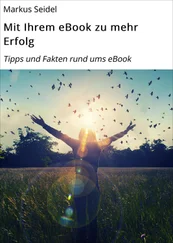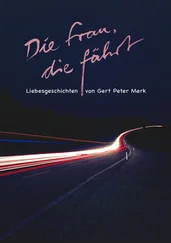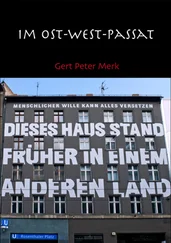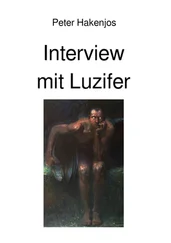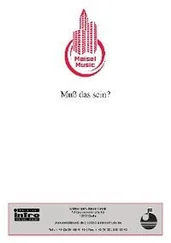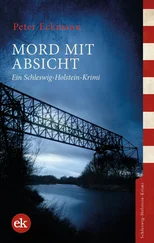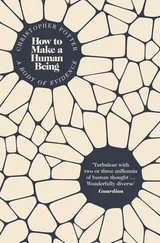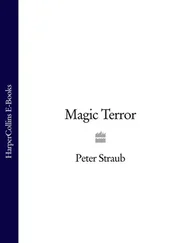Peter Markus - We Make Mud
Здесь есть возможность читать онлайн «Peter Markus - We Make Mud» весь текст электронной книги совершенно бесплатно (целиком полную версию без сокращений). В некоторых случаях можно слушать аудио, скачать через торрент в формате fb2 и присутствует краткое содержание. Год выпуска: 2011, Издательство: Dzanc Books, Жанр: Современная проза, на английском языке. Описание произведения, (предисловие) а так же отзывы посетителей доступны на портале библиотеки ЛибКат.
- Название:We Make Mud
- Автор:
- Издательство:Dzanc Books
- Жанр:
- Год:2011
- ISBN:нет данных
- Рейтинг книги:5 / 5. Голосов: 1
-
Избранное:Добавить в избранное
- Отзывы:
-
Ваша оценка:
- 100
- 1
- 2
- 3
- 4
- 5
We Make Mud: краткое содержание, описание и аннотация
Предлагаем к чтению аннотацию, описание, краткое содержание или предисловие (зависит от того, что написал сам автор книги «We Make Mud»). Если вы не нашли необходимую информацию о книге — напишите в комментариях, мы постараемся отыскать её.
We Make Mud — читать онлайн бесплатно полную книгу (весь текст) целиком
Ниже представлен текст книги, разбитый по страницам. Система сохранения места последней прочитанной страницы, позволяет с удобством читать онлайн бесплатно книгу «We Make Mud», без необходимости каждый раз заново искать на чём Вы остановились. Поставьте закладку, и сможете в любой момент перейти на страницу, на которой закончили чтение.
Интервал:
Закладка:
The Singing Fish: Revisited
There are, in this dirty river town, with this dirty river running through it, fishering men and fishering women who like to fish from boats. But us brothers, unlike all of them, we do our fishing standing on the river’s muddy shore. These boats that we see, out on the river, with these fishering people standing up inside them, we see them all day long going up and down the river looking for fish. Sometimes we see these boats and it looks like to us brothers that they are, all of the time, just running up and down the river looking for fish and not ever doing any actual fishing. Us brothers, we could never get it into our heads why a fishering man or fishering woman would need a boat for them to fish with. We always figured let the fish come to us. Which is what the fish usually did. But there was a time, one summer, when it seemed like to us brothers that the fish in our river had gone off to be fish in some other river other than ours. Us brothers, we couldn’t imagine a river other than ours. We couldn’t picture a fish that would want to be a fish in some other river other than our river. Our river was a dirty river, it was a good river, us brothers believed, for dirty river fish like ours to be fish in. Us brothers, we loved this dirty river town with this dirty river running through it where we could always run down to it to fish. But there was that summer. That summer, those dirty river fish of ours that we always used to fish from out of this dirty river that runs its way through this dirty river town, it was as if these fish had gone away to be fish in some other dirty river town other than ours. How could they? was what us brothers wanted to know. We didn’t want to believe that our fish might be that kind of fish. In the end, about all this, it was wrong for us brothers to think this about these fish. Our fish, they hadn’t left our dirty river, our dirty river town. What happened to our fish was this. It was hot, that summer, and the sky, that summer, it never seemed to turn gray with the promise of rain. A river, us brothers, we soon discovered, it needs rain for it to be a river. Just like a fish needs a river for it to be a fish. By midsummer, that summer, when us brothers made our way down to the dirty river where we always ran ourselves down to its muddy banks to fish for our dirty river fish, there was more mud, down there, that summer, than there was river down there. It looked like to us brothers, to our boy eyes, that the river, too, just like our fish, like it too had gone, it was going, away. The river, it was true, it had gotten thinner along its usual muddy banks. And along the banks of this dirty river, there was more dirt, that summer, than there was mud made by the river’s water. But the river, us brothers, we believed in this, deep in our muddy brother hearts, it would always be the river to us. No one or no thing could take the river away from us. And the fish, too, us brothers, we believed this: the fish were somewhere out in the river too. Where the fish were, that summer, out in the river, us brothers, we couldn’t get ourselves out to. The fish, we found this out, the fish were out in the river’s channels, and out farther too out where the river turns east to become the lake. To the river’s channels and out into the lake was where our fish had gone off too: not to some other river, but to this other place in the river and out in that other place too — the lake — that the river flowed out to, though both of these places, us brothers, we could not get out to, not without a boat. Us brothers, we didn’t have us brothers a boat for us to go out fishing for these fish in, out where the fish were out there in the river’s deeper down waters, out where the river’s bottom was deeper down, down there in the river where there was more river for the fish to be fish in. We need us a boat, Brother one night, that summer, he pointed this out. Brother was the brother of us brothers who was always saying what the both of us brothers were thinking. Brother was that kind of a brother. We’d been for the past few nights the both of us brothers both of us thinking this thought, though this was the first time one of us said it out loud outside our own boy heads. It was at night when Brother said what he said about us brothers needing us a boat. Up in the sky, that night, the moon was, as it always seemed to be for us brothers, big and shining white. The river, in the moon’s light, it was laid out for us brothers like a silver shimmering fish. Us brothers, we needed us a boat. You can say that again was what I said to Brother. And when I said what I said, when I said these words to Brother, that’s when it happened. Out there in the river’s moonlit night, out there out on the river, there in the river’s dark, out of the corners of us brothers’ eyes, we saw it: a boat. There was a boat out there out on the river slowly floating down the river. This was a boat floating slowly down the river without any lights on it to light the river’s way. Us brothers, we ran ourselves down to the river to see who it was who was out on this boat, to see who it was who was out on the river, at night, in a boat without any lights. But us brothers, even though the moon was big and white, we couldn’t see anyone, no fishering man or fishering woman, standing up or sitting down on the inside of this boat. We even called out to it, this boat, Hey, your lights! Both of us brothers hollered out, Turn on your lights! But only the rivery echoes of our own boy voices returned to us from the river’s dark. So what us brothers did then was this. We walked out, into the river, across the river’s sparkling dark, out to where this dark boat was darkly drifting, out to where this boat without any lights on it was floating down the river on the river’s downriver flow. Careful, Brother, Brother said, as the river crept up around our necks, our heads floating, or looking like they were floating, like a couple of chopped off fish heads. Don’t drown, Brother said. When Brother said what was in his boy head, I turned then to face Brother in his face. Half of his face was lit up in the moon’s lighthouse light. What I said to Brother then was this. Fish don’t drown, Brother, I said. To a fish the river is its home. When I said this to Brother, Brother gave me this look. There was this look that us brothers we sometimes liked to look at each other with this look. It was the kind of a look that actually hurt the eyes of the brother who was doing the looking. Imagine that look. Brother’s mouth opened up wide like a fish drinking in water. Let’s keep on walking then, Brother said to this. And so, us brothers, out into the muddy river, out across the river’s water, we walked, and walked, and kept on walking, walking through muddy water, walking out to where this boat, it was floating and floating away. When the river reached up above our boy eyes, above our fish heads, that’s when the both of us brothers took in a deep breath. Like this, like fish, us brothers, with the river’s muddy water covering us brothers up, us brothers, our mouths opening up, like this we began to sing.
We Did Not Call This Boy Brother
Us brothers, we knew of this other boy who lived in this town, in this dirty river town, though this boy, this other boy, us brothers, we did not call this boy brother. This other boy, he was different from us brothers. He was not one of us. What was different about this boy was, this boy, he’d never been, by the river, born. He died is what we are telling you. This boy died before he had a chance to breathe. This boy, he was a ghost is what we are wanting you to see. This boy, he was a ghost who lived not just down by the river: no, this boy, this ghost of a not-brother, he lived in the river, down at the river’s muddy bottom, down where mud goes when it sinks. This other boy, he haunted us brothers — he liked to scare away from us brothers all the river’s fish. Sometimes this boy, he liked to make like he was a fish, and he’d take into his boy mouth one of our mud-dipped, minnowy-tipped fishing hooks. This boy, he would tug, and pull, he would hook himself through his bottom lip, and then he would run, this boy would, down along the river’s bottom, and this would make us brothers believe that we had, there on the other end of our lines, hooked to our silvery hooks, a real live fish. A keeper, is what we called these fish: a fish big enough for us brothers to eat. But when we’d reel this boy up and in and drag him up ashore to the river’s muddy shore, this boy did not make like he was a fish about to be put into a bucket — a fish that was about to be made dead. Fish on! is what this boy, he’d holler up at us brothers, he’d unlip our fishing hooks, he’d spit them down into the mud. Fish off! is what he’d say to us brothers next, before diving head-first back into those muddy waters. But one night, us brothers, we couldn’t take it any longer: this boy making like a fish and then this boy getting off and going away from us. This one night, this other boy, he took into his boy mouth our mud-tipped, minnowy-dipped fishing hooks one too many times, so that when we felt that pull, that fishy boy tug, there on the other end of our line, when we reeled him up and in and plopped him down onto the river’s muddy shore: on this one night, with this boy looking up all fishy-eyed up at us brothers up from the river’s muddy banks, and with this boy already starting to grin at us brothers, Fish on! — what us brothers did different this night was this. We gave each other this look. There was this look that, us brothers, we sometimes liked to look at each other with this look. It was the kind of a look that hurt the eyes of the brother who was doing this looking. Imagine, if you would, that look. What are you looking like that for? is all that this boy could say. Us brothers, we said nothing to this boy asking us this. What we did say to this boy was this. This fish, Brother said, he is a keeper, Brother said. If you say so is what I said to Brother. I nodded my boy head. I wetted with spit and mud my fish-kissing lips. Then I reached inside my rightside trouser pocket and I fished out our fishing knife. This was the knife that us brothers used to gut out the guts of our fish, to cut the heads off of our fish. And this ghost of a boy, this making-like-a-fish boy, he knew what was coming next. He gazed up good and ready when I raised up this knife up toward the sky and held it like that so that, for a moment, the moon was trapped in the glinting of its silvered metal. And with the moon above us watching, the moon above our brother, I called this boy Boy. Boy, I whispered. Boy, I hissed. You are one of us now, I said. Are you ready for this, Boy, I said. Are you sure about this? This boy nodded with his head. If you say so, I said. If you want me to, I said. And then I chopped off his boy head.
Читать дальшеИнтервал:
Закладка:
Похожие книги на «We Make Mud»
Представляем Вашему вниманию похожие книги на «We Make Mud» списком для выбора. Мы отобрали схожую по названию и смыслу литературу в надежде предоставить читателям больше вариантов отыскать новые, интересные, ещё непрочитанные произведения.
Обсуждение, отзывы о книге «We Make Mud» и просто собственные мнения читателей. Оставьте ваши комментарии, напишите, что Вы думаете о произведении, его смысле или главных героях. Укажите что конкретно понравилось, а что нет, и почему Вы так считаете.
